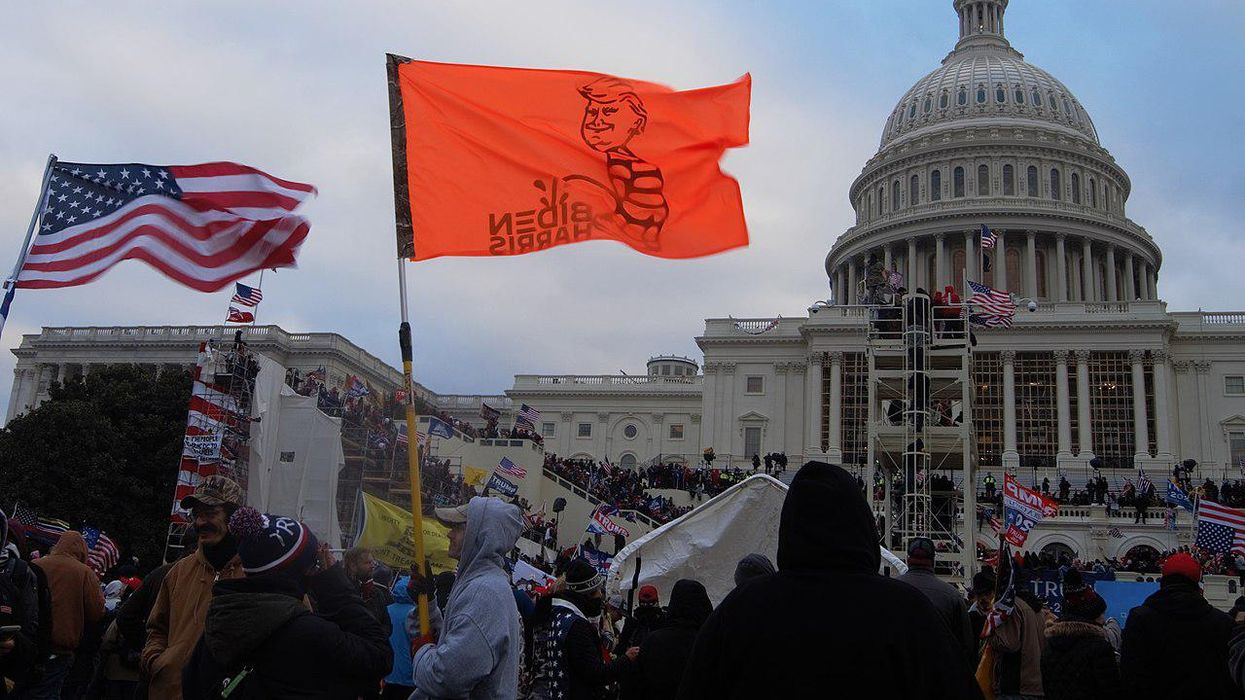Why modern American politics has historians spooked

June 02, 2021 | 05:01PM ETFrontpage news and politics

In their 2018 book "How Democracies Die," Steven Levitsky and Daniel Ziblatt — both political science professors at Harvard University in Massachusetts — point out that liberal democracies don't necessarily turn authoritarian overnight but rather, gradually become police states when their checks and balances are undermined. Levitsky, in recent weeks, has been warning that the Republican Party is growing increasingly authoritarian — and reporter Ben Jacobs, in an article published by Vice this week, stresses that Levitsky isn't the only one sounding the alarm about growing authoritarianism in the United States.
There have been many troubling signs since the 2020 presidential election: former President Donald Trump refusing to accept the election results, the January 6 assault on the U.S. Capitol Building, many Republicans in Congress voting against certifying now-President Joe Biden's Electoral College victory, Republicans in state legislatures all over the U.S. pushing voter suppression bills. Jacobs notes that after Sen. Lisa Murkowski, a conservative Alaska Republican, voted in favor of a commission to investigate the January 6 riot, she "expressed her disgust" that most of her fellow Republicans in the U.S. Senate voted against it.
"(Murkowski's) concern is echoed by an increasing number of scholars who study American history and the rise of authoritarianism around the globe," Jacobs explains. "While republics are often fragile, they see the United States in a unique position as a mature democracy at the point of fracturing. As Harvard political scientist Steven Levitsky, co-author of 'How Democracies Die' — a study of the collapse of democracies across the world — put it bluntly, 'I think we are headed for a crisis.'"
Jacobs quotes Levitsky as saying, "The underlying assumption when we wrote ("How Democracies Die") was that an important — even a dominant faction — of the Republican Party was committed to the democratic rules of the game, and that is no longer the case. The GOP, over the past four years — and far more quickly and far more thoroughly than I expected — has become a party that is capable of stealing an election, willing and potentially able to steal an election. And I would not have taken this seriously when we wrote the book."
After the January 6 insurrection, Levitsky noted, "Lots of GOP leaders said the right thing for 24-48 hours, took a step back, sniffed the wind, looked at the polls and continued the march towards authoritarianism."
Jacobs points to Hungarian Prime Minister Viktor Orbán as an example of an authoritarian who gradually undermined democracy in his country and created a police state.
"There are some similarities to Hungary with Republican efforts to change voting rules in some states.... particularly as states like Georgia, Iowa and Texas use Trump's false claims of voter fraud to pass legislation that Democrats claim would lead to voter suppression," Jacobs observes.
Sean Wilentz, a historian at Princeton University in New Jersey, describes the January 6 insurrection as "a calculated assault on (the) democratic process." Wilentz told Vice, "A democratic election was held, with a very clear winner, and some people were not willing to accept that decision.… Rather than secede, (Trump loyalists) promote a big lie much more than like what happens in European authoritarian politics and deny the legitimacy of the current administration."
H.W. Brands, a University of Texas historian, told Vice, "There has never been an instance of a president who ran for reelection, lost and still had such command over his party as Trump." And Ziblatt has warned that 2020 could be a "dress rehearsal" for Republicans refusing to accept any election results in 2022 or 2024 that they don't like.
"The overwhelming concern among scholars isn't so much the continued personal influence of Trump, but the impact of his continued false claims about election fraud and efforts to overturn the 2020 election," Jacobs writes. "They worry what the 2024 election could look like as the Republican Party has further radicalized and the embrace of (the) 'Big Lie' has become a foundational belief of many on the right."